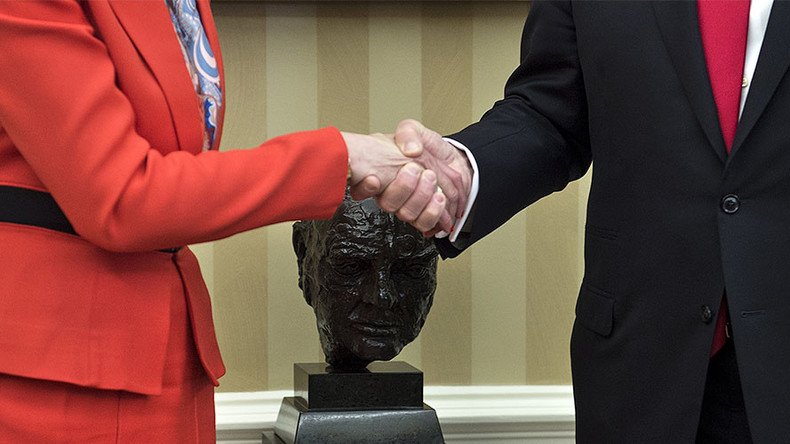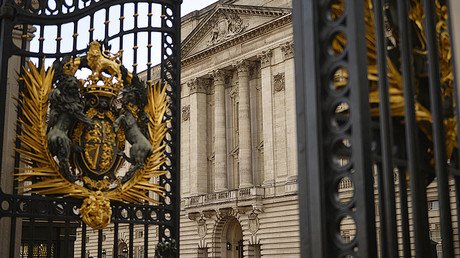Donald Trump ‘has been good for the UK economy,’ says Bank of England

Britain’s economy is benefitting from greater confidence in US financial markets following the election of US President Donald Trump, Bank of England (BoE) Deputy Governor Ben Broadbent says.
“You’ve seen business confidence rise particularly in the United States,” Broadbent told the BBC on Friday.
“You’ve seen financial markets get more optimistic and I think that has had some impact [on Britain].”
Britain’s economy is sensitive to changes in the global economy and stands to benefit from stronger US growth and its impact on other countries, he said.
“It is a positive thing.”
Broadbent’s comments come a day after the BoE hiked its growth forecast for 2017.
In its quarterly inflation report, the BoE upped its growth forecast to two percent this year, from its November estimate of 1.4 percent. In August, the BoE’s forecast was 0.8 percent, shortly after British voters decided to leave the EU.
Broadbent defended the BoE’s weak August forecast, saying it was based on surveys of consumers and businesses which showed confidence tumbling after the Brexit shock.
Confidence quickly bounced back and consumer spending proved to be resilient in the second half of 2016, wrong footing the BoE and almost all private economists.
But Broadbent warned 2017 would be a “more challenging environment for households,” as inflation rises sharply, pushed up by the fall in the value of the pound since the Brexit vote.
Trump has pledged to slash taxes, ramp up infrastructure investment, and is expected to tear up regulations put in place following the financial crisis. He has also promised to erect trade barriers.
Last week in the US, the Dow Jones Industrial Average broke through the psychologically significant 20,000 mark for the first time in its history, boosted by positive sentiment around Trump’s economic policies.
Broadbent cautioned, however, that there remains an unknown element to the Republican leader’s policy program.
“There are other things the US administration has said that people may worry more about, or have done in some markets.
“And I should say overall that… there’s a lot we have yet to see about the detailed plans, including those for fiscal policy, for government spending and taxes and so forth, so we’ll have to wait and see.”
Who will Theresa May choose – EU or US?
Following the Brexit vote, UK Prime Minister Theresa May finds herself in the unenviable position of having to choose between the EU and Trump – who could “prove to be Britain’s downfall” – a longstanding British ally warns.
Maltese Prime Minister Joseph Muscat, who is hosting a summit of EU leaders to discuss the future after Britain leaves the EU, believes May will have to choose between the US and Europe.
“The UK is bigger than most European countries but smaller than the EU and the UK is smaller than the US. So it really and truly is up to the prime minister to pick her priorities, to decide what they are,” Muscat told the Times.
Any free trade deal between the UK and the US would involve opening British markets in services – from the National Health Service (NHS) to the City of London – to US competitors, Muscat said.
He acknowledged Britain’s closeness to the US could help during Brexit negotiations, but cautioned that the “uncertainty” surrounding Trump’s policies could bring Britain down.
“To my mind it is very clear that this relationship could be her Joker or Trump card but it could also be the downfall of everything. I go back to the issue of unpredictability,” he said.
“We are learning fast under this US administration all things are not equal, they mutate pretty fast.”
EU countries are alarmed at Trump’s declaration that he will put America first, Muscat said. They fear that tearing up multilateral trade deals could be a strategy to seek superpower dominance.
“He said ‘America first’ and it may be that the way in which he sees the interest of his country is by making other countries weaker,” Muscat said.













